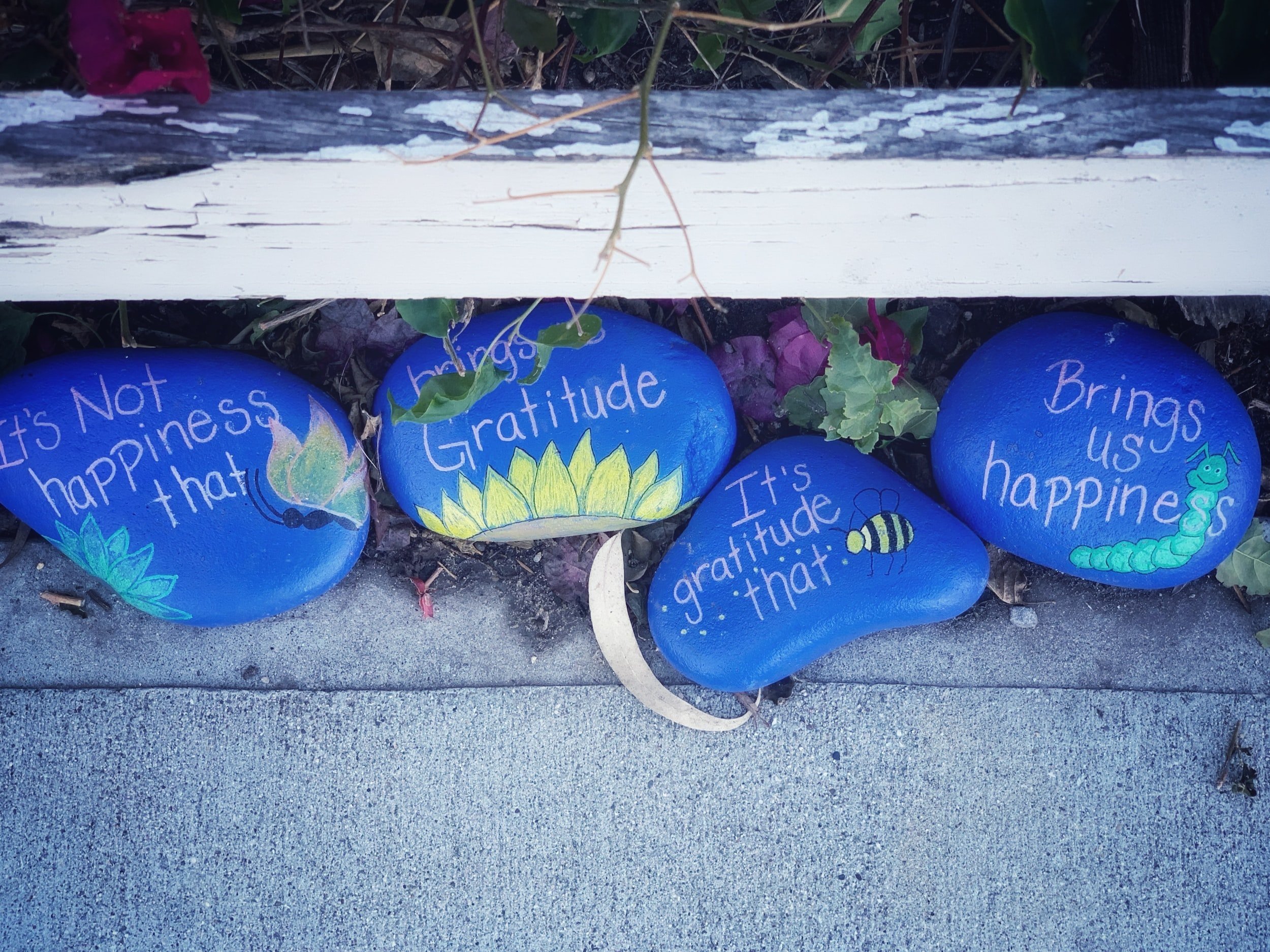WELLBEING TOOLKIT
Personal Gratitude List
Thank you for it all, the warmth and shelter, the comfy bed, the loving dog, the son, the sister, the mother, the uncle, the brother, the greater circle of friends and family. The trees and flowers, the allotment garden, the birds, the deer and fish, the river and waterfalls. The grass, the smells and sounds. The food from all over the world, the cups of tea and glasses of orange juice. The freedom to go into nature every day.
Dealing with Anxiety
Then being honest becomes normalised, and fear in particular seems to become deflated by being acknowledged fully. It removes a large amount of its power when the resistance is let go of. It becomes just something that’s ordinary, like “I’ve got a sore foot”. It’s still there but not such a big deal.
Allowing ourselves to be Happier
The most common regret that dying people expressed according to a survey I read is, “I wish I had allowed myself to be happier”.
What struck me was the volitional element. They had come to see at the end of their lives that it was and is a choice.
Easy Showering Mindfulness Exercise
Showering Mindfulness works particularly well as it is such a visceral experience, rich in sensory input which we can use to move ourselves out of our thoughts and into the peace of the present moment.
In the shower we are alone, we are safe and there is nowhere else to go. We are in there for the duration and it is a perfect time to be fully grounded in our bodies.
50 Uplifting Questions
Uplifting questions that foster appreciation and gratitude from ‘Tiny Buddha’.
1. What’s one kind or thoughtful thing someone did for you recently?
2. Who is always there for you, and how do you feel about them?
3. Who has helped you become the person you are today, and what’s the top thing you’d thank them for?
Mental Health Toolkit - Good Facts
Writing a list of ‘good facts’ is a powerful way of reminding ourselves that whatever else is going on, there are a lot of positive things going on in our lives too.
These ‘good facts’ exist whether we are currently feeling low, depressed, anxious or happy and relaxed. Reminding ourselves of these good facts help us to build and maintain resilience through current or future stressful times.
Mental Health Toolkit - Gratitude
Regularly reminding ourselves of what is going right in our lives counteracts our natural tendency to focus on our problems. We tend to focus on what is not right particularly when we are struggling with a low mood, anxiety or depression. It is during these times that we particularly benefit from a focus on what we are thankful for, even if it is a struggle to get going with a gratitude list when we feel like this. do it anyway! While it won’t immediately transform our current mood, if you develop a regular practise you can retrain the mind to focus on what is going well.
Mental Health Toolkit - Stressbusting
Learn to be self-compassionate and talk gently to yourself. Replace judging or criticising yourself by developing a nurturing inner voice and say to yourself during hard times “You’re a good person going through a hard time. You’ll get through this, lets take one moment at a time. It will be okay”.
Mental Health Toolkit - Strengths
An awareness of our strengths, qualities and inner resources can loosen the grip of negative emotions such as anxiety and depression and can help us to build resilience for the future and to make more space for gradually increasing our happiness level.
Here are 5 easy habits to practise that will help to increase your happiness and wellbeing :
Who visits a therapist?
Whatever motivates you to consider counselling or psychotherapy, a majority of people feel better speaking to someone professional who is trained to listen deeply to you with empathy and unconditional positive regard.
A good therapist doesn’t tell you what to do or how to live your life. He or she will give you an experienced outside perspective and help you gain insight into yourself so that you can make better choices.











